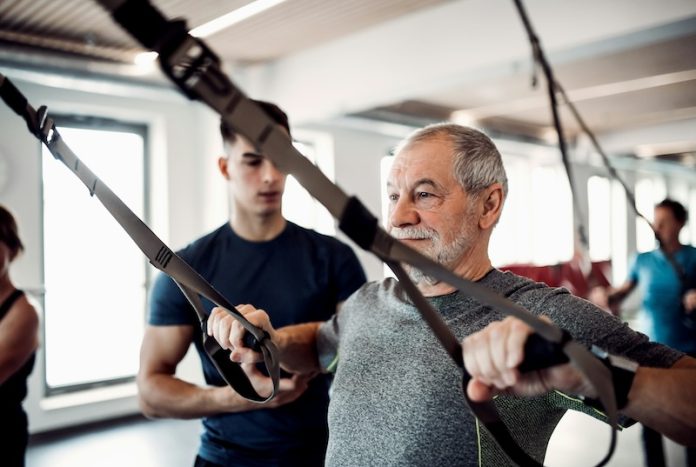
As we age, keeping our bones strong becomes more important than ever. After 60, bone density naturally declines, increasing the risk of fractures and osteoporosis.
But the good news is that you can take simple steps every day to keep your bones healthy and reduce your risk of bone-related problems. Let’s dive into some proven habits and the science behind them.
One of the most essential habits is making sure you get enough calcium. Calcium is a mineral that forms the building blocks of your bones. If your diet doesn’t provide enough calcium, your body takes it from your bones, leaving them weaker.
Experts recommend about 1,200 milligrams of calcium daily for people over 50. Foods like milk, cheese, yogurt, tofu, almonds, and leafy greens such as kale and spinach are excellent sources.
Research shows that people who consistently meet their calcium needs have stronger bones and are less likely to develop osteoporosis.
Vitamin D is just as important as calcium because it helps your body absorb calcium efficiently. Without enough vitamin D, even a calcium-rich diet won’t do much for your bones. Your body makes vitamin D when your skin is exposed to sunlight, but as you age, your skin becomes less effective at producing it.
That’s why many people in their 60s benefit from vitamin D supplements or eating foods like fatty fish, fortified milk, and eggs. A study published in The Journal of Clinical Endocrinology & Metabolism found that older adults with adequate vitamin D levels had a significantly lower risk of bone fractures.
Weight-bearing exercises are another crucial habit for bone health. Activities like walking, dancing, or light resistance training put stress on your bones in a way that stimulates them to stay strong.
Studies have shown that people who engage in regular weight-bearing exercises maintain higher bone density than those who are sedentary. Even if you’ve never been active before, starting with simple exercises such as brisk walking or yoga can make a big difference over time.
Strength training, using weights or resistance bands, is especially effective for building bone strength in areas prone to fractures, like the hips and spine.
Another daily habit that can support bone health is eating a balanced diet rich in other nutrients that work with calcium and vitamin D. For example, magnesium and vitamin K2 play critical roles in bone metabolism.
Magnesium, found in nuts, seeds, whole grains, and green vegetables, helps convert vitamin D into its active form. Vitamin K2, found in fermented foods like natto or some cheeses, directs calcium into the bones where it belongs.
Research suggests that diets containing a variety of these nutrients contribute to better bone health in older adults.
It’s also important to limit habits that weaken bones. Excessive alcohol consumption and smoking are two major culprits that can reduce bone density.
Studies show that smokers and heavy drinkers are at a higher risk of fractures. Even moderate reductions in these habits can benefit your bones and overall health.
Staying hydrated is another simple yet overlooked habit. Proper hydration supports all your body’s systems, including your bones. Dehydration can lead to muscle cramps and falls, which increase the risk of fractures.
Drinking water throughout the day and including water-rich foods like fruits and vegetables in your diet is an easy way to keep your body in balance.
Finally, routine bone health check-ups are essential. A bone density test, known as a DEXA scan, can identify early signs of bone loss, allowing you to take proactive steps.
Combining this with your healthy habits will give you the best chance of keeping your bones strong and resilient as you age.
The secret to stronger bones isn’t really a secret at all—it’s about making small, consistent changes that add up over time. With the right balance of nutrition, exercise, and lifestyle choices, you can protect your bones and enjoy an active, independent life well into your golden years.
If you care about bone health, please read studies that plant-based diets can harm your bone health without these nutrients, and this bone problem may strongly increase COVID-19 death risk.
For more information about wellness, please see recent studies that too much of this vitamin may increase your risk of bone fractures, and results showing this type of exercise may protect your bone health, slow down bone aging.
Copyright © 2025 Knowridge Science Report. All rights reserved.



